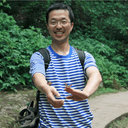Enhancement of anti-allergic effects mediated by the Kampo medicine Shoseiryuto (Xiao-Qing-Long-Tang in Chinese) with lysed Enterococcus faecalis FK-23 in mice.
Ключевые слова
абстрактный
Kampo is a traditional Japanese medicine originating from ancient Chinese medicine which included the administration of herbal prescription, lifestyle advice and acupuncture. Orally administered Kampo prescriptions are believed to be influenced by diet and intestinal microbiota. However, reports on the Kampo administration effects are still limited. Shoseiryuto (TJ-19), which has anti-allergic and anti-inflammatory properties, is a Kampo prescription used clinically for the treatment of allergic bronchial asthma. We examined whether Shoseiryuto administration is affected by a probiotic product, lysed Enterococcus faecalis FK-23 (LFK). BALB/c mice were sensitized with cedar pollen allergen, and the peritoneal accumulation of eosinophils was induced. During a sensitization period of 21 days, varying amounts of Shoseiryuto (and saline as a control) were administered to the mice. The accumulation of eosinophils was significantly reduced by 30 mg/day doses of Shoseiryuto but not by 3 or 9 mg/day doses. Similarly, 3 mg/day Shoseiryuto, 30 mg/day LFK, 3 mg/day of Shoseiryuto co-administered with 30 mg/day of LFK, and saline control were compared. A significant reduction in the accumulation of eosinophils was observed at 3 mg/day Shoseiryuto co-administered with 30 mg/day of LFK. These results suggest that Shoseiryuto-mediated anti-allergic effects are enhanced by the probiotic (LFK). Although not significant statistically, serum allergen-specific and total IgE levels in the treatment group exposed to the mixed agent (ie. Shoseiryuto and LFK) were generally lower than those receiving either one alone. The results indicate a synergistic effect of a Kampo medicine (Shoseiryuto, Xiao-Qing-Long-Tang in Chinese) and lysed Enterococcus faecalis FK-23 on allergic responses in mice.



